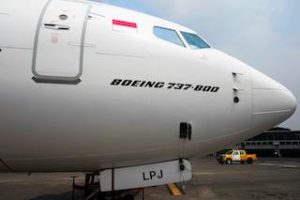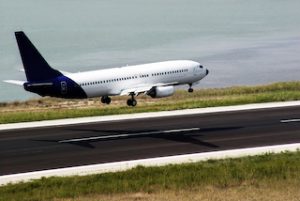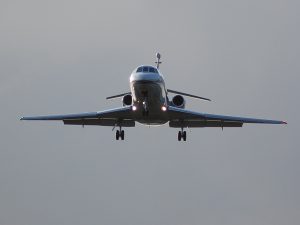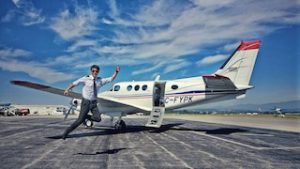3 Pilot Courses For Career Advancement
 In the competitive and highly demanding world of aviation, pilots must undergo rigorous training and continuous education to stay ahead. For those aspiring to join international carriers, three critical courses stand out: the Multi-Crew Cooperation (MCC) course, the Airline Pilot Standard (APS) course, and the Jet Orientation Course (JOC). Each of these courses plays a pivotal role in shaping a pilot’s career, ensuring they possess the skills and knowledge necessary to meet the highest standards of commercial aviation. This article delves into the importance of these three courses, their distinct objectives, curricula, and how they collectively contribute to a pilot’s career advancement in the international aviation industry.
In the competitive and highly demanding world of aviation, pilots must undergo rigorous training and continuous education to stay ahead. For those aspiring to join international carriers, three critical courses stand out: the Multi-Crew Cooperation (MCC) course, the Airline Pilot Standard (APS) course, and the Jet Orientation Course (JOC). Each of these courses plays a pivotal role in shaping a pilot’s career, ensuring they possess the skills and knowledge necessary to meet the highest standards of commercial aviation. This article delves into the importance of these three courses, their distinct objectives, curricula, and how they collectively contribute to a pilot’s career advancement in the international aviation industry.
1) Multi-Crew Cooperation (MCC) course
The Multi-Crew Cooperation (MCC) course is the foundational step for pilots transitioning from single-pilot operations to a multi-crew environment. This course is crucial for those aiming to work in a commercial airline setting where teamwork and communication are paramount.
Objectives of the MCC course
The primary objective of the MCC course is to teach pilots how to operate efficiently and safely as part of a multi-crew cockpit. This involves:
-
- Crew Resource Management (CRM): Developing effective communication, decision-making, and leadership skills within a multi-crew environment
- Standard Operating Procedures (SOPs): Understanding and adhering to standardized procedures to ensure consistency and safety
- Role clarification: Clearly defining the roles and responsibilities of each crew member to enhance coordination and efficiency.
- Emergency handling: Training to manage in-flight emergencies and abnormal situations collectively.
Curriculum of the MCC course
The MCC course curriculum includes both theoretical and practical components:
-
- Theoretical training: Classroom sessions covering CRM principles, SOPs, and the psychological aspects of teamwork.
- Practical training: Simulator sessions that replicate multi-crew aircraft environments, allowing pilots to practice communication, coordination, and emergency procedures in real-time scenarios.
- Debriefing sessions: Detailed feedback on performance to identify strengths and areas for improvement.
2) Airline Pilot Standard (APS) course
The Airline Pilot Standard (APS) course is designed to further enhance a pilot’s readiness for the complexities of airline operations. It builds on the foundation laid by the MCC course, focusing on advanced skills and knowledge required for commercial jet operations.
Objectives of the APS course
The APS course aims to prepare pilots for the demanding environment of airline operations by focusing on:
-
- Advanced CRM skills: Enhancing communication, teamwork, and leadership abilities to operate effectively in high-pressure situations.
- Jet aircraft systems: Providing in-depth knowledge of jet aircraft systems, high-speed aerodynamics, and performance characteristics.
- SOP adherence: Ensuring strict compliance with airline-specific SOPs.
- Emergency and abnormal procedures: Training in handling complex in-flight emergencies and abnormal situations.
- International regulations: Familiarising pilots with international flight regulations, airspace classifications, and navigation requirements.
Curriculum of the APS Course
The APS course includes a comprehensive curriculum:
-
- Theoretical instruction: Detailed classroom sessions covering advanced CRM, jet aircraft systems, SOPs, and international regulations.
- Practical training: Extensive simulator sessions that mimic real-world jet operations, allowing pilots to practice advanced procedures and emergency handling.
- Scenario-based training: Realistic flight scenarios that test a pilot’s ability to manage complex situations.
- Debriefing and evaluation: Continuous feedback and evaluation to ensure mastery of skills and knowledge.
3) Jet Orientation Course (JOC)
The Jet Orientation Course (JOC) is tailored specifically for pilots transitioning from propeller-driven aircraft to jet aircraft. This course focuses on the unique handling characteristics and operational requirements of jet aircraft.
Objectives of the JOC
The primary objective of the JOC is to equip pilots with the essential skills and knowledge needed to operate jet aircraft safely and efficiently. This includes:
-
- Jet aerodynamics: Understanding the principles of high-speed flight, including compressibility effects, shock waves, and transonic flight.
- Engine performance: Gaining knowledge of jet engine operation, performance characteristics, and fuel management.
- Advanced flight planning: Learning techniques for efficient flight planning in a jet environment.
- Cockpit management: Mastering the use of modern avionics and automation systems.
- Simulated flight scenarios: Practicing realistic flight scenarios, including normal operations, abnormal situations, and emergencies.
Curriculum of the JOC
The JOC curriculum is structured to provide both theoretical and practical training:
-
- Theoretical training: Classroom sessions covering jet aerodynamics, engine performance, and advanced flight planning.
- Practical training: Extensive simulator sessions that replicate jet aircraft operations, allowing pilots to practice jet handling techniques and high-speed flight dynamics.
- Debriefing sessions: Providing feedback on performance to enhance skills and knowledge.
Synergy of MCC, APS, and JOC courses
While each course has its distinct objectives and curricula, the MCC, APS, and JOC courses collectively form a comprehensive training pathway for pilots aspiring to join international carriers. Here’s how they complement each other and contribute to a pilot’s career advancement:
Building a Strong Foundation with MCC
The MCC course lays the groundwork by teaching pilots the fundamentals of multi-crew operations. It ensures that pilots are proficient in CRM, teamwork, and SOP adherence, which are essential for any airline operation. By completing the MCC course, pilots develop the communication and coordination skills necessary to operate efficiently in a multi-crew cockpit.
Advancing Skills with APS
The APS course builds on the foundation laid by the MCC course, providing advanced training in CRM, jet aircraft systems, and SOP adherence. This course prepares pilots for the complexities of airline operations, ensuring they can handle high-pressure situations, manage complex systems, and adhere to strict operational standards. The APS course also familiarizes pilots with international regulations, making them suitable candidates for international carriers.
Specializing with JOC
The JOC provides specialized training for transitioning to jet aircraft. It focuses on the unique handling characteristics and operational requirements of jets, ensuring that pilots are comfortable and proficient in operating jet aircraft. This course is essential for pilots moving from propeller-driven aircraft to jets, providing them with the skills and knowledge needed to handle the high-speed dynamics of jet operations.
Career impact of MCC, APS, and JOC
Enhanced employability: Completing the MCC, APS, and JOC courses significantly enhances a pilot’s employability. International carriers look for pilots who possess comprehensive training and are ready to handle the demands of commercial aviation. These courses provide the necessary credentials, making pilots more attractive candidates for major airlines.
Competitive advantage: Pilots who have completed the MCC, APS, and JOC courses have a competitive advantage over their peers. These courses demonstrate a commitment to professional development and a readiness to operate in the most challenging environments. Airlines value pilots who have invested in advanced training, as it indicates a higher level of competence and preparedness.
Career progression: The MCC, APS, and JOC courses are stepping stones for career progression within the aviation industry. Pilots who complete these courses are better positioned for promotions and advanced roles within airlines. The skills and knowledge gained from these courses enable pilots to take on greater responsibilities and leadership roles.
MCC, APS, JOC
In the journey to becoming a successful airline pilot, the MCC, APS, and JOC courses are indispensable. Each course plays a unique role in preparing pilots for the complexities of commercial aviation, ensuring they possess the skills and knowledge needed to excel. The MCC course lays the foundation by teaching multi-crew cooperation and CRM, the APS course advances skills in airline operations and jet systems, and the JOC provides specialized training for jet aircraft operations.
Collectively, these courses provide a comprehensive training pathway that enhances a pilot’s employability, provides a competitive advantage, and supports career progression within the aviation industry. For pilots aspiring to join international carriers, completing the MCC, APS, and JOC courses is not just beneficial—it’s essential. These courses equip pilots with the expertise and confidence to meet the highest standards of commercial aviation, ensuring a successful and fulfilling career in the skies.










